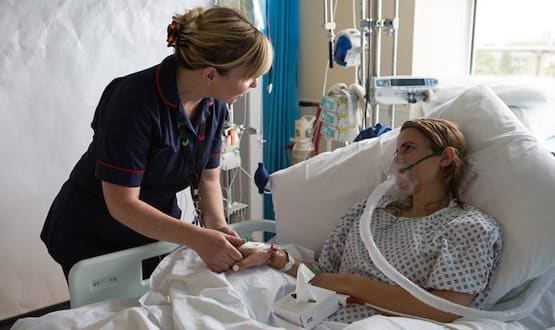Wireless sensors are to monitor the environment in intensive care at Chelsea and Westminster Hospital NHS Foundation Trust, with a view to creating the best conditions for patient recovery.
CW+, the main charity supporting the organisation, has partnered with Drayson Technologies to launch a pilot of the environmental sensors that will monitor room temperature and carbon monoxide.
The work forms the first part of a plan to create a ‘sensor-rich environment’ that is hoped will have a significant impact on critically ill patients’ wellbeing and their recovery.
Medical director for Chelsea and Westminster Trust, Zoe Penn, explained: “We want to create the best possible environment for healing and being able to monitor the environmental conditions in near real-time will be crucial in achieving this.”
A spokesperson for Drayson Technologies, which focuses on the internet of things in the context of healthcare added: “The sensors will allow for near real-time monitoring of room temperature and carbon monoxide concentrations, allowing doctors to react swiftly to subtle changes that could otherwise impact upon patient recovery.”
CW+ is currently running a Critical Care Campaign to raise £10 million to significantly expand and redevelop both the adult and neonatal intensive care units at Chelsea and Westminster Hospital.
The pilot of the environmental sensors was announced at the recent Healthcare Efficiency through Technology show in London, where CW+ presented seven of their digital health innovation projects currently being implemented at the trust.
The pilot is due to start in the next few weeks and will last for 12 months.
In March of this year, Chelsea and Westminster were named as a joint global digital exemplar with Imperial College Healthcare NHS Trust. The two organisations have a joint CIO, and it is planned will both run Cerner’s Millennium electronic patient record.
However, the trust has since the NHS Expo event in September been re-categorised as a fast follower. An NHS England spokesperson explained the change “Yes, they [Chelsea and Westminster] were originally listed as a joint GDE [with Imperial] – with the Expo announcement they’re officially now known as a Fast Follower.
As the department in which the most seriously ill patients are cared for and closely monitored, ICU has been a key area for technological development in healthcare. Last year, for instance, Digital Health News reported on the move to paperless in ICU at University Hospitals Birmingham NHS Foundation Trust.


10 October 2017 @ 10:27
Monoxide or dioxide ?
10 October 2017 @ 13:36
I’m guessing carbon monoxide, if it’s about room conditions. ie…. leaky hospital boiler increases levels of carbon monoxide in room – kills patient.
10 October 2017 @ 14:28
Yes its monoxide – subbing error – now corrected
Jon